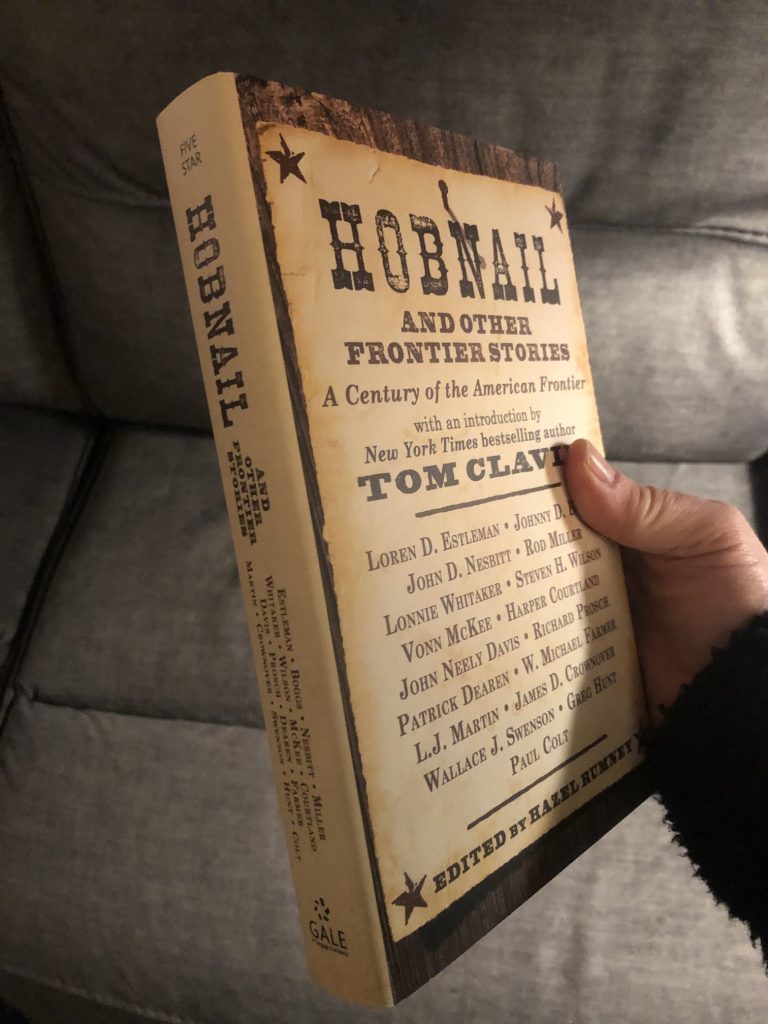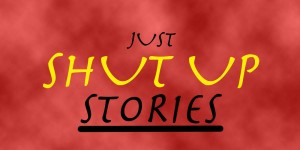 I began this missive by telling you I was in a moral quandary. Here it is: I’d drained a victim to the point of no return – he wasn’t going to live, no matter who intervened, but he wasn’t dead yet. He’d asked to die, and now he’d changed his mind. Tough luck, you say? There’s nothing I can do for him, you say? Ah, but there was something I could do for him, and he knew exactly what it was.
I began this missive by telling you I was in a moral quandary. Here it is: I’d drained a victim to the point of no return – he wasn’t going to live, no matter who intervened, but he wasn’t dead yet. He’d asked to die, and now he’d changed his mind. Tough luck, you say? There’s nothing I can do for him, you say? Ah, but there was something I could do for him, and he knew exactly what it was.
I didn’t want to do it. Not on a bet.
* * *
It was early August, and I was in San Diego. I’d been having a very nice time. I’d come early to see the sights, before attending the Cato Institute’s summer seminar. By design, I’d missed their events for the last few years; but this year, American libertarians seemed to have recovered from most of their September 11-th inspired tendency to encourage war. I was glad, for I really wanted to be among thinking people again.
I’d spent the early dusk hours in an Irish pub in the Gas Lamp district, flirting with an outspoken bartender from Boston and sipping Guinness. No, I never drink wine; but Guinness is something you never outgrow, even when you don’t grow any longer. It doesn’t affect me at all, and the taste is totally altered by my condition. I still just like the experience of sipping the odd Guinness in the odd Irish pub.
As I attempted to make my case to this opinionated young woman, who simply would not believe that Killian’s Irish Red was, in fact, brewed in Colorado, a bulletin about a traffic accident came on the omnipresent television. It was nearly ten, and the traffic reports long over, but it seemed that this accident involved enough vehicles that it had actually closed Pacific Highway going northbound. Six people were dead, and medevac helicopters were rushing patients from the scene.
I suddenly remembered I was hungry. As the local news commentator began to interview a spokesman for the police about how undemocratic it was that drivers of SUVs tended to survive more such accidents than drivers of economy cars, I tapped the dummy pager I always wear.
“I have a call,” I told my Celtic sparring partner. “Gotta run.”
“Is it about that accident?” she asked. “You a doctor?”
I smiled. “Among other things.” I tipped her entirely too much, slipped onto the street and into a dark corner, and flew. Literally. You cover a lot of ground as a bat.
In fact, I hadn’t lied to the barkeep. I am a doctor. Studied at the Sorbonne, in the late 1890s. I’ve kept up my knowledge via books and medical journals. I’m not licensed to practice anywhere. How could I be? Licensing requires that someone know who and where I am.
But being a physician in fact, if not by law, does allow me to assess the condition of a subject, to know when death is imminent, and, in many cases, to ease the suffering of those I’m dealing with. (Occasionally, I’ve increased the suffering, but only occasionally. Perhaps you could force yourself to be impartial and gentle with, for instance, a mother who murdered her children in order to catch a husband. I am not so saintly.)
The scene of the accident was, as expected, grisly. I did not count the vehicles involved, as such details don’t help me in any way. Nor do they help most people, other than to indicate magnitude of damage, and give an idea of how long it will take for the roadway to be cleared. Unless a family member is involved, or you need to travel that particular road, I have no idea why you would want to read about or see footage of a traffic collision. Or any calamity with an airplane, train, or other conveyance. If you are not directly affected, or can use the story of the occurrence to increase your own personal safety, I do not see why you would want to know.
Perhaps I am hard-hearted. Strike “perhaps.” I know I am. But I see no virtue in reviewing and sharing the pain of people you don’t even know. It is a false compassion you feel, if your feelings go anything beyond “that’s too bad, I hate to see that happen to anyone,” or “I would hate for that to happen to myself or my loved ones.” The media works very hard to convince us that these events do affect us, and that we should feel the same loss that the victim’s old mum does. It’s good for their business, but it’s very bad for our peace of mind. It often damages our ability to set our own priorities and attend to the needs of those to whom we do owe our compassion.
By the time I arrived, a seventh patient had died, thus becoming useless to me. Most of the more critical cases had been transported to the hospital already. One helicopter was preparing to take off, just then. After a quick scan of the other injured, all but two of whom were standing on their own power, I decided I would accompany the patient in the ‘copter. Its blades were already spinning. A problem for me. A bat cannot easily approach a grounded helicopter when its blades are generating air currents. A bat doesn’t weigh enough to resist. A mist would blow right away. A dog would attract too much attention. I was forced to assume my own form – for a moment. Once I was at the ‘copter, I misted myself and floated in. One young paramedic did see me, out of the corner of her eye. I made sure I was not there for her second look. My ghostly appearance and disappearance frightened her. I heard her pulse race. She didn’t stop working on her patient, however, and I didn’t hear her mention it to her cohorts. People don’t like to discuss any sign that they are hallucinating. That is a powerful weapon in my arsenal.
As a bat, I snuggled beneath an equipment bag at the rear of the cabin. I watched. The victim being transported was an adult male. He looked to be in his mid-forties. I could tell by the sound of his chest cavity that he had sustained severe internal injuries. My hearing may just be a better diagnostic tool than ultrasound or MRI. If my people ever do become accepted in human society, I intend to make another fortune working as a diagnostician. I’ll merely have to solve the problem of how to make my enhanced senses switch on without alarming my patients. It takes the smell of fresh blood to do it. This poor man had much fresh blood on him and coming out of him.
He wasn’t going to live. Not even an hour was left to him.
I felt hunger pangs. They weren’t in my stomach – ours never are. Hunger, for us, is a chill in the blood. Our skin is always cold. Folktale informs you of that fact, doesn’t it? Still, our body temperature does vary. It’s just always colder than yours… while you’re living. When we have fed, the warm blood warms us throughout. Our system operates at peak efficiency, digesting and recirculating. We don’t feel hunger again until we have processed what we’ve taken in, and our body temperature lowers again. No fuel to keep the furnace going.
The paramedic stayed with him, checking vital signs, attempting to keep him stable until they arrived at the hospital. There was no way I could feed without being seen. Some vampires would have leapt at the chance to wreak havoc at this juncture. I could have resumed human form, likely causing the girl before me to urinate in terror. I could have feasted on the dying man, then on her, then on the pilot. I could have sent the ‘copter on a downward plunge, with a terrific explosion to destroy all of the evidence of my visit. I could have easily escaped all of this unharmed.
I was not about to do it. These people had done nothing to deserve such a fate. Even at my hungriest, I had not broken the code I’d developed in Baltimore. So, hunger or no hunger, I had to wait until we landed, and I had a better opening. I crept quietly along the floor to the base of the patient’s stretcher, which would stay with him all the way into an operating room at the ER. Nestled under the vinyl flange of its cushion, I pulled my bat’s wing over my head and took a nap.
* * *
The restrained jolt of the stretcher being lowered to the ground awakened me. Tuning out the chatter as the patient’s condition was recited to a physician, I listened for his vital signs myself. They were ebbing quickly. He might not live to reach an operating table, and my waiting would be for naught. Still, I had no choice but to ride this out. If he died too quickly, well, it was a hospital. Food could not be far away.
They never even operated. Time of death was called immediately upon examination, and the body was left in a darkened cubicle for pickup. There were many other patients from the same accident to be seen. The ER staff did not waste time.
Fortunately for me, they did miscall the time of death. Human doctors often do. That’s not to say that they so often abandon patients who could be saved. I merely mean that the actual death – the moment when the blood becomes useless to me – often comes seconds or minutes after they have declared it to be passed. Just as often, they will attempt to save a patient who has passed that threshold already.
In this case, I was left in a darkened room with a potential corpse. It was dinner time. I shifted to my human form. No one from the hospital would come in here until the chaos without had quieted. The victim’s family would be some time arriving. The roads were still backed up from the accident.
I hadn’t counted on the morbid tendencies of some teenagers.
The boy didn’t burst in on me. He was very quiet, actually. He slowly opened the door, and gave his eyes a few seconds to adjust to the dark. I must have been distracted. I could have shifted to a less visible form in the blink of an eye, but I didn’t. I didn’t notice he was there until he’d seen me.
And he saw me. Blood on my chin and all.
“Oh my god,” he murmured vaguely, something akin to surprise – but less intense – behind his eyes.
To Be Continued
This story is provided for free, but is, of course, copyrighted. You may share it with anyone and everyone, and I hope you will. But you must always attach my name to it, and you may not alter it in any way. Because if you take my story and turn it into something better than I could write, I will be really, really pissed.
But, if you enjoyed it and would like to be a patron of my art, please consider a donation in any amount. The site actually does cost some money to maintain, and a lot of really cool people have helped me. I’d like to be able to buy them cars or something. (And by “cars,” I mean Matchbox®.)



 This is a mood piece. I was in a mood when I wrote it. But the critic raved, so I was motivated to share…
This is a mood piece. I was in a mood when I wrote it. But the critic raved, so I was motivated to share…


